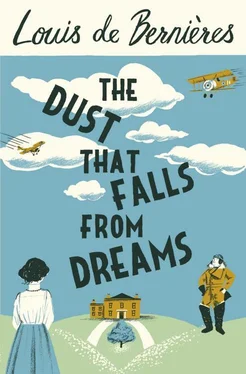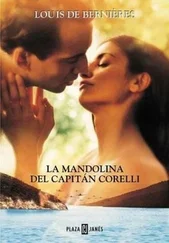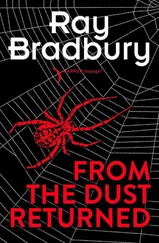No one found it, and so it was that in Cheriton Cemetery on 30 May, amongst dozens of others, a coffin was lowered into the ground containing what were probably the torso and limbs of Mrs Henry Cowburn, without her head.
45. The Metamorphosis of Mrs McCosh (2)
Windsor Castle
15 June
Dear Mrs McCosh,
His Majesty graciously requests that I should thank you for your kind letter of 5 June.
It is indeed true that there are no regiments of women on armed active service, although there are of course many women playing important roles as, for example, the drivers of fire engines and ambulances.
His Majesty asks me to remind you that he has no direct control over Parliament or over the Ministry of War, and that the issue as to whether or not women may go on active service is a matter for them.
His Majesty feels that even were there such units of women on active service, you may yourself be of too mature an age to endure the rigours of battle, and he therefore recommends that you consider preparing yourself for any invasion that may occur in the unlikely event of defeat on the Continent.
If you have friends in the country you might like to consider a visit sufficiently long to learn the use of a hunting rifle and shotgun from one of the gamekeepers or the man of the house.
In the meantime you may consider the acquisition of an air rifle, which may safely be used in the garden, and which would provide invaluable preparation for the mastery of a more powerful weapon. With an air rifle you will be able to practise on rats and pigeons those arts which would become most useful were the war to come to Eltham, since the elementary skills employed in the accurate use of an air rifle are identical to those required in the use of a Lee — Enfield, just as an air pistol would provide admirable apprenticeship in the use of a revolver. His Majesty advises that shooting with a rifle is at its most accurate when performed from the prone position.
His Majesty offers his sympathy over the loss of your dear friend in the recent atrocity in Folkestone, and asks me to convey his admiration for your determination to use this loss as further inspiration for patriotic action. As you have not been in touch for several months recently, he asks me to inform you that he is pleased to find you are still vigorous.
On behalf of His Majesty,
Lt Col. Sir Frederick Edward Grey Ponsonby, Secretary to His Majesty
46. The Metamorphosis of Mrs McCosh (3)
MRS MCCOSH TOOK a morning out to go to Swan & Edgar, reluctantly making the journey by omnibus. As she entered its doors she made it immediately clear that she was not just another tabby by collaring a shop walker. ‘I wish to be taken immediately to whichever department it is where I may be able to acquire an air rifle,’ she said.
The walker was not unduly surprised by this, since there has always been a certain type of Englishwoman who is prepared to brain a burglar with a poker or take potshots at an invader with an airgun, and in wartime the number of them greatly increases.
An hour later, having tried out everything they had, and listened to many lengthy technical explanations, she had bought a Brittannia, a strange-looking weapon because it had the compression chamber under the stock. It was, however, powerful and accurate, and you could adjust the compression so that you could use it on half power, for greater safety in confined spaces. She had also bought a supply of fifty targets, one thousand pellets and a metal target holder.
She wrote out her cheque and dictated her address so that the items might be delivered, and then she went to the toy department and purchased ten painted lead soldiers that together proved to be surprisingly heavy. There were no models of contemporary German soldiers, so she bought Napoleonic infantrymen on the grounds that an old enemy was better than none, Entente Cordiale and present alliance notwithstanding.
Two days afterwards Mrs McCosh walked boldly into the clubhouse of the Blackheath Golf Club. Her husband, who was supposed to be conducting business in London, was fortunate to spot her as she came to the door, and darted out of the back of the building, concealing himself behind an artisan’s shed.
She addressed the assembled elderly gentlemen who had until that moment been tapping the dottle out of their pipes, reading the Morning Post or Punch , or idly watching the putting on the green outside.
‘Are there any old soldiers here?’ she demanded.
Thus it was that Major Butterworth, fifty-five years old, veteran of the Sudan and former regimental shooting champion, found himself in the garden of The Grampians supervising Mrs McCosh’s education, with Mrs Pendennis knitting in a deckchair nearby, for the sake of probity.
Mrs McCosh lay on a tartan rug and learned to shoot in the prone position, then she learned to shoot kneeling, and then from behind a wall, and then standing. She quite undeniably had a knack for it, achieving tight groups at the upper edge of the bullseye almost every time. Major Butterworth regretted never having met her when he was younger, before Hamilton McCosh had snapped her up. He very much enjoyed their lessons, and acquired an air rifle of his own, setting up a shooting range on the upper landing of his house, much to the dismay of his housekeeper. He cut out pictures of the Kaiser and of liberal politicians from newspapers, glued them to pieces of card, pinned them to a large wooden board, and took pleasure in obliterating their heads every day for a quarter of an hour after breakfast. This catharsis greatly increased his personal happiness, and the happiness greatly improved his golf.
When Rosie next came home she found no one in the house to answer the door, and so she went round into the garden and stood and watched in wonder as her mother, one by one, knocked ten Napoleonic lead soldiers off a packing case from a distance of twenty yards, attended by Millicent, who was bearing the tin of pellets.
A week later Mrs McCosh was upstairs when she heard the unmistakable clattering of wood pigeons as they mated in the tree outside the landing window, which had been opened on account of the warmth of the day. She had always strongly dis-approved of the shameless public promiscuity of pigeons.
Ten minutes later she appeared in the kitchen below stairs and laid a dead bird on the table, the scarlet blood still purling at its beak. ‘Please remove the breasts from this bird,’ she instructed Cookie, ‘and put the rest in the stockpot. I will have the breasts sliced and fried with onions and bacon for lunch tomorrow, when I shall be dining on my own.’
‘Yes, madam,’ replied Cookie. ‘Without it being hung at all?’
‘I have never acquired the taste for rotten meat,’ said Mrs McCosh with grandeur.
After she had gone, Cookie looked at the beautiful bird and said, ‘Poor little sod.’ Then she began to pluck it, still warm in her hands, because a warm bird is easier to pluck by a long mile.
At about teatime it occurred to Cookie that there may be a further use for Mrs McCosh’s marksmanship, and accordingly she went to her and said, ‘Madam, did you know that since we’ve had chickens, ’cause of the war an’ all, we’ve had rats something chronic down the orchard? They’re nicking the scraps. I thought you might like to, you know …’
‘Deal with them? Certainly, Cookie. I shall imagine they’re the Boche.’
Mrs McCosh soon learned the art of sitting extremely still, partially concealed behind an apple tree, and then she learned the hard way not to shoot at rats when a chicken was in the same field of fire.
Читать дальше












